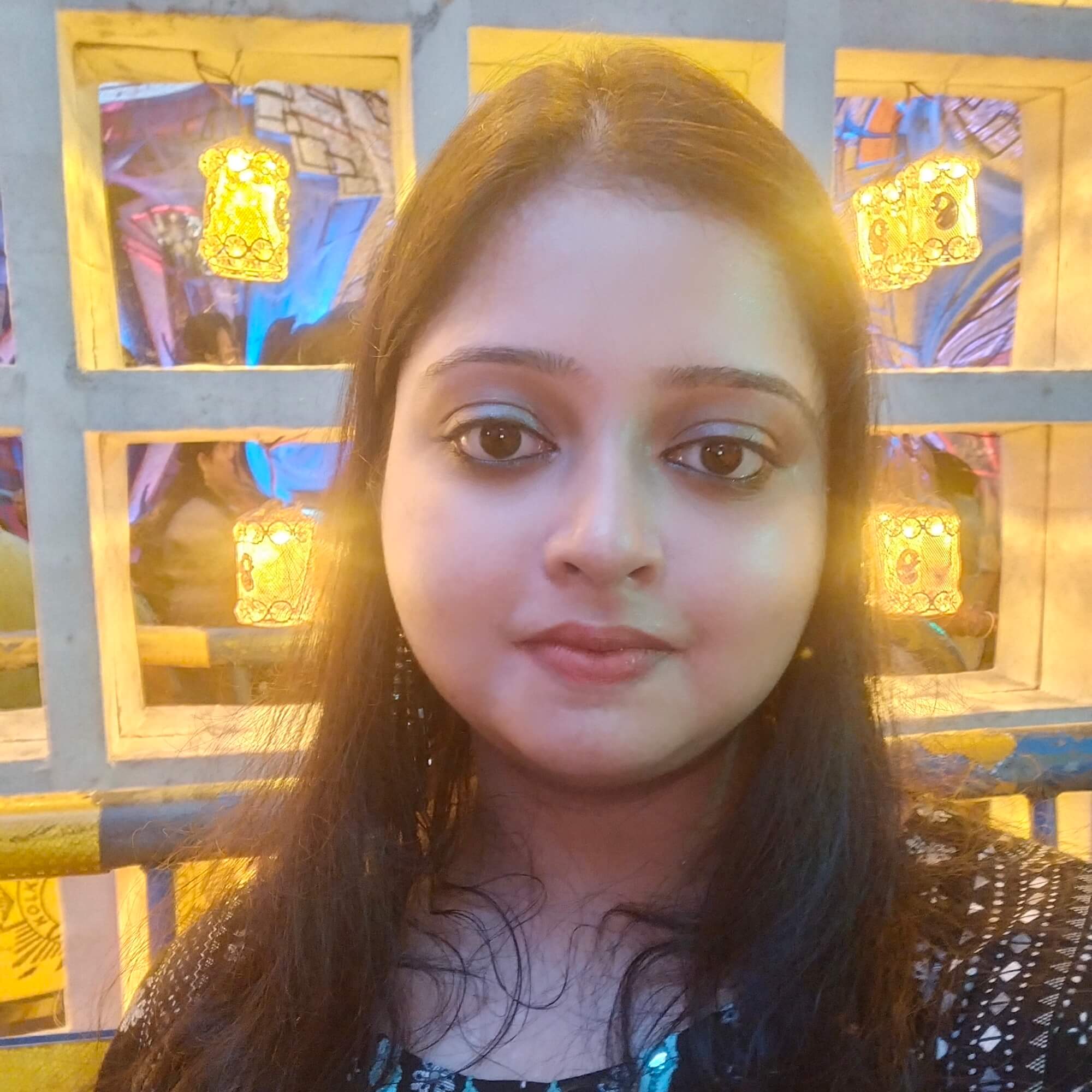By Srijani Rupsha Mitra
Synopsis
The first poem deals with the social anxiety I faced while travelling in the metro and how visualising the rasas helped me cope with my anxiety and depression. The second poem also talks about my anxiety and how I took the decision of choosing an open university for further studies.

A Song for the Rasas
By Srijani Rupsha Mitra
And it is again here,
That fear of breaking apart, silenced wreckages,
churning within
The suffering of mind never ends, it is recurring, repetitive, retaining
Pathos, pain piercing through like needles,
There is always this undertone, chaotic and suppressing the self in
Some soiling sensation, uncharted, undefined, there’s always this eerie
Haunting, dilapidations, anxiety at sights moving past like parallax motion.
I sigh in the metro, I cry, I retry to reclaim myself, inexpressible
Unexplored unknowns curbing me, chiselling the atrium into parts
Broken and barren and dry.
It is again grinding midst the daily grind, the self and its authenticity
Like entwining interstices in time, hollowing me, swallowing me
Engulfing the gaps in synapses, the lapses in memory.
Yet there is the ruddy godhuli, that I look through like an orange lampshade
The roshyis of hope envelop my skies, I absorb the power of the kundalini
In Vipassana times. Evoking the ras of shringaar – greenish golden ecstasy,
Hasyam – a spilling of utter rawness, smooth as safa wool, a fountain of laughter
I indulge in wondrous amalgamations with Adbhutam, the bluish beauty of Agni
And It is the serene summoning Shantam that brings the tranquil lights,
Mesmerises the weary eyes, as I recite the hymns harmonious,
As I realise Rasas heal, rasas all hearty and alive.
Bengali language words defined:
(Godhuli) means twilight.
(Roshyis) means rays.
(Safa) a Sufi term meaning pure.
(Shringaar) means love.
(Hasyam) means laughter.
(Adbhutam) means wonder.
(Agni) means fire.
(Shantam) means peace.
(Rasas) – emotions in Indian aesthetics.
Choosing this Wasn’t Easy
By Srijani Rupsha Mitra
It wasn’t easy to choose this slow journeying,
I still hesitate to call up my friends and say
“Hey I am tired of falling. And staying in this dark mesh of
A wood. Bring me to the light”
Right from that opening of college after lockdown
Triggering memories of nervous breakdowns
Gnaw at my heart, thorough and full of sorrows
And telling me to cease and heal. I so wish to
Sense fresh kinships, an open air, freed ecstasy in college
But some sort of incarceration loomed large over me
Like a saturnine despair drenching me, coiling me within
A miserable misery, choked throat, dread, dismay
I tried so much figuring out myself midst all the rigidity
But collapsing again and again, washed over faded like pinpricks
Of rain.
It was terrible to suddenly accept a pause, a halt
Where was my real self? Where did I lose the self, cluttered bits of
It lying here and there in abandonment, in closed spaces of my room
In pasts thrilling and enthralling, where was all the jubilance?
I tried to bring back the ruined heart, learning, I am still learning
To accept it’s okay to be in the dark and sometimes lose paths
It is okay to cease and say ‘ I need time to heal. I will heal ‘
And entering this open space gave me an emancipation away from
The litany, a liberation, to embrace, from the clouds to the silvering
Grace.
© 2023

I liked these poems. I’m glad the Sanskrit(?) terms were explained after the first poem, but they made the poem seem more authentic in my opinion.
I also liked the juxtaposition of these two poems. both concerning anxiety and a way found to make progress through it , but the first expressed in ancient timeless spiritual terms, whilst the other talks in more concrete terms of the here and now.
Thank you so much for this. I am glad that you liked my poems.